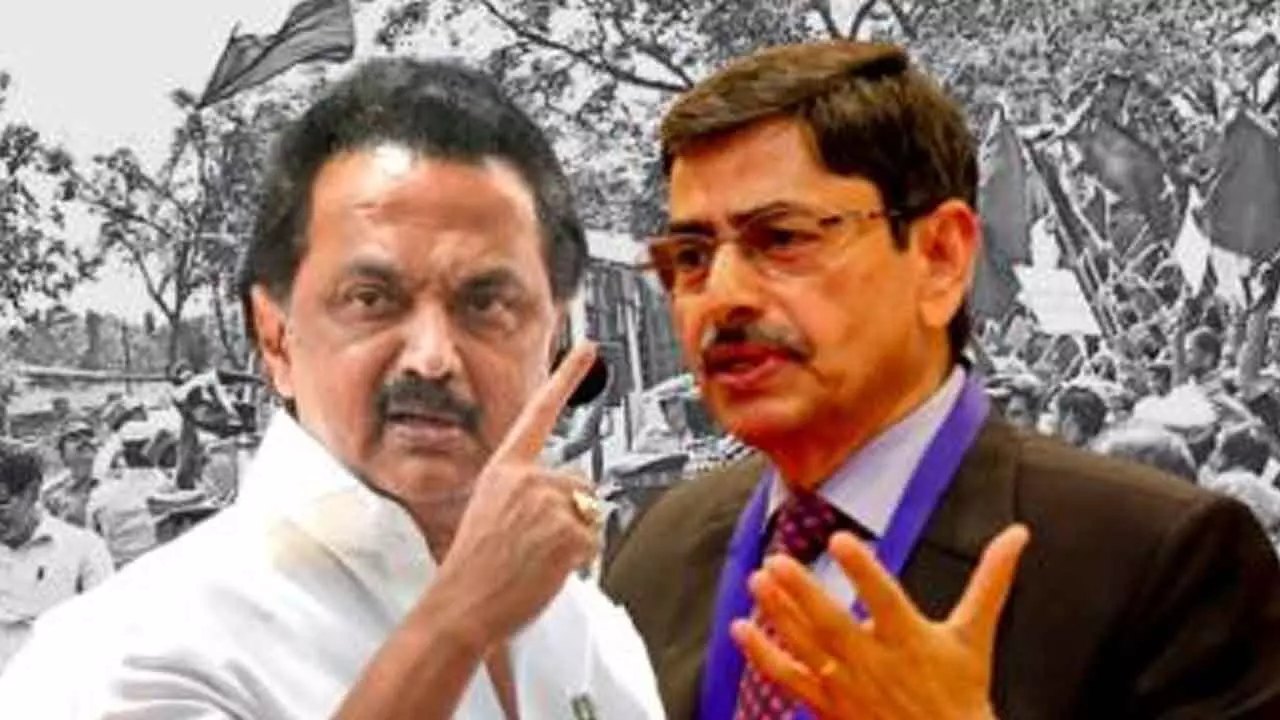Governor vs CM: Shadow boxing continues unabated

Ever since his appointment as Governor of Tamil Nadu in September 2021, R N Ravi has had a continuous battle with the incumbent DMK government in Chennai. This is no isolated case as first citizens of many states have been targets of trenchant criticism from the lawmakers of the respective states for failing to discharge their ‘constitutionally- mandated’ duties. The Stalin-led government got a reprieve from the Supreme Court after the self-trumpeted ‘historic judgement’. It held that reservation of 10 Bills by Ravi for Presidential approval was ‘erroneous in law’. The apex court, in its April 8 judgement, also clearly elaborated that under Article 200 of the Constitution, the role of the Governor is to mandatorily abide by the aid and advice of the council of ministers of the state governments, negating the scope for any discretion in the former’s favour. Between then and the recent missive by Tamil Nadu Chief Minister Stalin urging the Opposition to unite against ‘Centre’s move on Governor’s powers’, the President of India, in an unprecedented Constitutional move went back to the SC on May 13 with 14 questions seeking its advisory opinion whether the judiciary can impose deadlines or direct how Governors and the President should act on State Bills.
The Centre, which had described the SC judgement as ‘clear overreach’, has sought a Constitution bench to resolve the matter. Even Vice-president Jagdeep Dhankhar expressed serious reservations about the ruling, calling it an instance of “judicial overreach”. He remarked, “We never bargained for democracy for this day. The President is called upon to decide in a time-bound manner, and if not, the bills become law.” Not surprisingly, it has become the latest legal debate to echo in various corners of the country, with top professionals expressing their opinions on the issue. Stalin had written earlier this week to his counterparts in non-BJP ruled states of West Bengal, Karnataka, Himachal Pradesh, Telangana, Kerala, Jharkhand, Punjab and Jammu and Kashmir to oppose the presidential reference to Supreme Court on such deadlines over Bills and called for a coordinated legal strategy. The DMK has always had a love-hate relationship with the Governor’s office from the time it assumed power in 1967 in Tamil Nadu. Right from the first Dravidian party CM, C N Annadurai, who was derisive about the role of the Governor in the political system, the regional party had to face arbitrary dismissals and persecution by many Governors.
So much so that till 1996, when M Karunanidhi completed a full-term, the party has never had that privilege for close to three decades. There have been four recorded instances of President’s rule, the latest being 1991. With the NDA government firm on having its control over the federal structure, which has seen pulls and pressures attempting to tear it apart over decades, the unease and ill-will between the Centre and states continue. As a strategy, it had been well-honed by Congress too during the first decades of its rule after India attained independence. The DMK, which is protesting against the NDA, now was resentful of the Congress during the 1960s- 1970’s period as it had wreaked havoc with the former during the first phase of its reign in Tamil Nadu. As an ideal model of governance, coordination and cooperation between the state government and the Governor showcases a healthy, democratically elected political system. In the present environment, where the INDIA bloc is forced to be on a confrontational course with the Centre, it seems like a never-ending headache.














